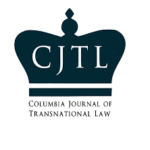B.C. L. Rev (2022). Online intermediaries are omnipresent. Each day, across the globe, the corporations that run these platforms execute policies and practices that serve their profit model, typically by sustaining user engagement. Sometimes, these seemingly banal business activities enable principal perpetrators to commit crimes; yet online intermediaries are almost never held to account for […]
Governing the Global Public Square
Harv. Int’l L. J. (2021). Social media platforms are the public square of our era – a reality that has been entrenched by the widespread closure of physical public spaces in response to the COVID-19 pandemic. And this online space is global in nature, with over 2.5 billion users worldwide. Its governance does not fall […]
User-Generated Evidence
Rebecca Hamilton, User-Generated Evidence, Col. J. Transnat’l L. (2018) Around the world, people are using their smartphones to document atrocities. Smartphone apps designed to allow Users to record material that will meet evidentiary standards are now freely available. User-Generated Evidence is the first Article to address this important development in international criminal law. It identifies three […]
Beyond Takedown: Expanding the toolkit for responding to online hate
Rebecca J. Hamilton (with Molly K. Land), Beyond Takedown: Expanding the Toolkit for Responding to Online Hate, in Propaganda and International Criminal Law (Predrag Dojčinović, ed.)(2019). The current preoccupation with ‘fake news’ has spurred a renewed emphasis in popular discourse on the potential harms of speech. In the world of international law, however, ‘fake news’ […]
Atrocity Prevention in the New Media Landscape
Journalists have traditionally played a crucial role in building public pressure on government officials to uphold their legal obligations under the 1948 UN Convention on the Prevention and Punishment of Genocide. But over the past twenty years there has been radical change in the media landscape: foreign bureaus have been shuttered, young freelance journalists have taken […]
Exit from International Tribunals
Rebecca J. Hamilton (with Joost Pauwelyn), Exit from International Tribunals, J. INT’L DISPUTE RES., 679 (2018). This Commentary marks the first effort to provide a comprehensive overview of the attempts that States have made to exit international tribunals over the past decade. We identify the recurring drivers (and deterrents) of exit as well as the […]
State-Enabled Crimes
Rebecca Hamilton, State-Enabled Crimes, 41 (2) Yale J. Intl. L. 102 (2016) International crimes are committed by individuals, but many – from genocide in Rwanda to torture at Abu Ghraib – would not have occurred without the integral role played by the State. This dual contribution, of individual and State, is intrinsic to the commission of […]
The ICC’s Exit Problem
Rebecca J. Hamilton, The ICC’s Exit Problem, 47 N.Y.U. J. Int’l L. & Pol. 1 (2014) The International Criminal Court (ICC) was never meant to supplant the domestic prosecution of international crimes. And yet the Court is now entering its second decade of operations in four African nations, with no plan for exit in sight. This […]
The ICJ’s Genocide Judgment – Bosnia v. Serbia
Richard J. Goldstone & Rebecca J. Hamilton, Bosnia v. Serbia: Lessons from the Encounter of the International Court of Justice with the International Criminal Tribunal for the Former Yugoslavia, 21 Leiden J. Int’l L. 95 (2008) (peer reviewed). This article uses the recent judgment of the ICJ in Bosnia v. Serbia to highlight the potential […]
Jesner v. Arab Bank
Rebecca J. Hamilton, Jesner v. Arab Bank (International Decisions), 112 (4) Am. J. Int’l L. 720 (2018). The exclusion of transnational human rights litigation from U.S. federal courts is, for most practical purposes, now complete. On April 24, 2018, the U.S. Supreme Court delivered a 5–4 ruling in Jesner v. Arab Bank, deciding that foreign […]












